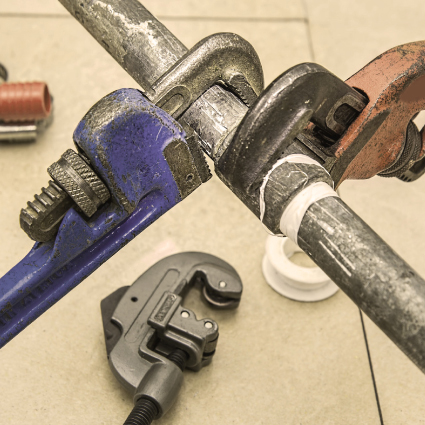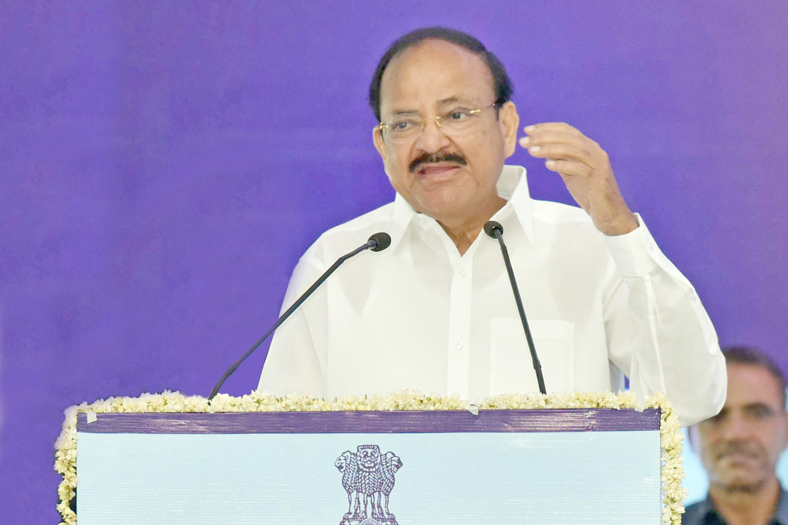India needs 12 lakh trained plumbers by 2020

Plumbing industry faces the mammoth challenge of huge gap between the supply of skilled labour and the demand of skilled labour
Real estate sector in India globally recognised for its scale and growth potential. Being the second largest employer after agriculture the real estate market is expected to touch $ 180 billion by 2020. With such tremendous acceleration, the demand for plumbing products and services too are bound for a witness burgeoning in this short time. In India, the size of plumbing sector is directly proportional to the size of the construction sector, ranging from 7.5 per cent to 15 per cent of the total construction industry. It should be noted that in 2010-11, the size of plumbing industry was about ` 33,000 crore. However, the services of plumbing sector now extend to supply of gas, heating and cooling systems, industrial waste management, water treatment, sewage and drainage, fire services, air-conditioning etc. Therefore, scale of plumbing sector is expected to exceed known financial forecasts.
The plumbing industry is driven technically by public health and environmental requirements arising from the water industry and the need for proper sanitation. With additional initiatives of ‘Smart Cities’, ‘Swach Bharat Abhiyan’ and ‘Housing for All’, plumbing now merely ceases to be just fixing taps and pipes. Today, and in future, water and energy efficiency requirements dominate designs, there is a spreading need for trained plumbers who can take on the challenges of complexities of design and execution, identify critical products, and assist in their operation and maintenance.
Plumbing plays an important role in providing potable water, safe sanitation and water conservation apart from ensuring safety of buildings and their occupants. It is often noticed that access to good quality water supply and sanitation systems is taken for granted but still many parts of India face the tragedy of death and disease as a direct consequence of the lack of access to basic plumbing systems. It should thus be aimed to initiate in developing national occupation standards, execute, aid and assist all activities towards skill development in plumbing sector. Also, crucial is that Plumbers need to be trained and provided with required skill sets for them to be equipped and contribute towards improving water and sanitation conditions.
In Indian cities, a 40 per cent water loss in transmission due to antiquated piping networks, spread of water born dieses like cholera and jaundice, and water contamination through leaky and substandard piping materials are indicative of India’s urgent need to propel the skilling of plumbers. An often quoted paradox, in the western world, a plumber is considered as “health keeper to the nation”, but in India, he is the last man in the hierarchy. Even a plumber due to lack of thorough understanding of his trade faces various hazards like exposed to the risk of contracting various diseases due to sub-standard plumbing practices. In addition, there is a pronounced necessity of plumbing education in India to improve the dignity of the plumbing profession.
As per survey by National Skill Development Council (NSDC), a mere 0.5 per cent of plumbers in the country are trained. Moreover, though there is a requirement of 12 lakh trained plumbers by 2020, the current availability is 2.5 lakh, with most of them untrained or self-trained. The plumbing industry is in the forefront of water and energy usages and is also indicative of living standards of households, individuals and working population. Plumbers in India play a pivotal role, especially when India top on water wastages due to water leakages.
The dismal situation of the skilling requirements of the country promoted the setting up of The National Skill Development Corporation (NSDC) India, a one of its kind, public-private partnership company with the primary mandate of catalysing the skills landscape in India. A large part of the organisation’s efforts are directed at the private sector and towards developing the skills in the unorganised sector in India. NSDC supports skill development efforts, especially in the unorganised sector in India by funding skill training and development programmes. It also engages in advocacy and training programmes, in-depth research to discover skill gaps in the Indian workforce, and developing accreditation norms. The National Skill Development Corporation (NSDC), co-promoted by the Finance Ministry with the mandate to involve the private sector in training 500 million people by 2022, is planning to set up 28 Sector Skill Councils (SSCs) across verticals. One such Skills Development Council is the Indian Plumbing Skills Council (IPSC). IPSC is the SSC partner for the execution of the skills building plans for the plumbing industry in India.
IPSC’s plumber skilling initiatives
IPSC is a nodal organisation for prescribing plumbing skill development syllabus framework, assessment of skilled plumbers, trainer training framework, trainer assessment and monitoring of agencies imparting training. It is a collaborative effort of government initiative and the partnership of the plumbing industry to develop a workforce of 12 lakh skilled plumbers by 2020. The plumbing industry faces the mammoth challenge of huge gap between the supply of skilled labour and the demand of skilled labour. IPSC is playing an important role in vocational training of plumbers, providing recognition and certification to Plumbers in accordance to National Skill Qualification Framework (NSQF) to make skilled manpower available for the Plumbing Industry from the entry level upto level 10 i.e. Ph.D (Doctorate). IPSC with support from NSDC has taken up initiatives like development of national standards of plumbing education, curriculum and certification, etc.
About 90 per cent of the plumbing industry workforce in India is not professionally trained. Most of the skill learning in the industry happens through unstructured, on-the job training (OJT). Lack of professionally trained plumbers is a major drawback for country’s construction and related sector. IPSC’s endeavour is to address these issues and bring the skill levels of India to world standards. The new apprentice is generally taken as a helper who learns various aspects of the job under the guidance of his seniors. As such, in the absence of structured formal education/vocational courses, there has not been much improvement and development in plumbing skills.
One of the major activities of IPSC is RPL wherein plumbers in the construction industry are assessed for their skills and imparted training on the skill gap identified.
The purpose of establishing the IPSC is to ensure that skilled and certified manpower in adequate numbers is provided across industries using plumbing skills and to raise plumbing standards in India to global levels. It will maintain a dynamic Labour Market Information System (LMIS) to keep track of the labour market skill gaps, frame occupational standards, facilitate development of practical and high quality training content, ensure adequate availability of faculty through training of trainer initiatives, build accreditation and certification mechanisms and encourage capacity building through private sector participation.
Plumbing is one of the professions on India’s wanted list as it raises its annual target figure for skilled workers coming into the country. Plumbing industry across India has become high employability job for the trained skill workers. Skilling can enhance international employability as well. However, since there is no strict construction regulations guideline or authorities, the plumbing industry is being controlled by non-professional where health and safety issues are compromised. There is immense potential for entrepreneurship ventures in this industry where the demand is very high. Starting plumbing contracting firms by locals where they can employ and promote local youths can bring change and bring more encouragement to join and work in this industry as skilled labours. Local construction companies, firms, or individual should insist to work with professional plumbing firms and give opportunities only to those companies.
Authored by__
Prof. (Dr) Virendra Kumar Paul,
Indian Plumbing Skills Council
Chaitali Basu,
Department of Building Engineering and Management
School of Planning and Architecture, New Delhi
Cookie Consent
We use cookies to personalize your experience. By continuing to visit this website you agree to our Terms & Conditions, Privacy Policy and Cookie Policy.









